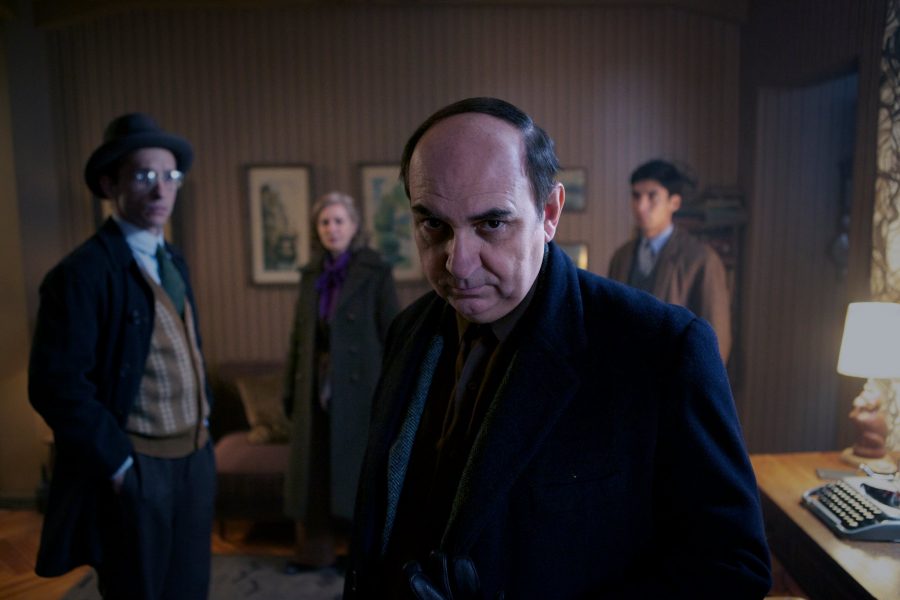NYFF Week 3: Comedies Within Dramas
“Naruda,” the World War II noir drama by Pablo Larraín, screened on the third week of the New York Film Festival.
October 12, 2016
Jim Jarmusch does not hide his intentions with “Gimme Danger,” the rock documentary on proto-punk band The Stooges, as the film opens with the director speaking to frontman Iggy Pop. Jarmsuch, in a dry yet sincere intonation, declares that The Stooges are “the greatest rock and roll band ever.” Such a statement is worth debating for another time, yet this unabashed sentiment is only the tip of the iceberg of lackluster documentary filmmaking, in which grandiose assertions and tendencies for myth making replace honest facts and chronology.
While “Danger” has moments of great interest and comedy, almost all of them are due to the subjects themselves, particularly Iggy Pop. Being the main interviewee — as he is one of the few remaining and certainly the only lucid Stooge – his insane animation and seeming candidness provide for vivid recounts of the band’s heyday, or lack thereof.
Jarmusch can’t help but botch these stories in the end, as incredible footage and photographs from the day are used to idolize the band rather than just present a narrative, skipping over the band’s writing processes or internal strife. He’s just too much of a fan to see the whole story.
“Toni Erdmann,” written and directed by Maren Ade, is difficult to describe, and I hesitate to call it a comedy. While extremely funny at points, its arid account of an aging prankster’s relationship with his overworked corporate daughter has moments of intimacy and overcoming sadness. The father-daughter duo of Peter Simonischek and Sandra Huller, respectively, is marvelous, offering a tangible emotional connection that serves as the film’s foundation and utilizing the dynamic to build up an awkward and progressively loose comedy.
The insights Ade offers in “Erdmann” are tremendous, often deconstructing the ludicrous practices of small talk and business conventions through the subtle pranks of Simonischek, who sells them effectively with his hulking, aloof performance. While a two and a half hour runtime causes some boring lulls, the film’s underlying understanding that connection and comedy instigate happiness makes “Erdmann” a delight.
In a Q&A after a screening of “Neruda,” director Pablo Larrain admitted he wasn’t certain of his film’s title. On the surface the name seems obvious given how the movie depicts, with a fictional flare, the famed Chilean poet, senator and communist activist Pablo Neruda’s flee from his fascist country in the years following World War II. In reality, however, the center of the film is the supposed antagonist Oscar Peluchonneau (Gael Garcia Bernal), the cop who hunts Neruda (Luis Gnecco) while also acting as the omniscient narrator.
Bernal is a wonder. His swaggering, drunken bravado mixes with lonely delusion to create a compelling effect which gives the bizarre detective a relatable sense of longing for recognition and appreciation. Larraín seems to understand the talent of Bernal, giving him the opportunity to drive the film with his narration which unfolds with hilarity and telling self-analysis.
The film itself charmingly combines elements of noir, drama and biopic, offering a highly entertaining cat-and-mouse chase. Sadly, there’s little development, only rehashing; that is until a philosophical discussion on authorship and narrative dominates the film’s close, an element that proves to be layered on too thick anyway. While the accumulating flaws of “Neruda” bog it down, it’s still Bernal’s film to the end, and he never stops shining through.
Email Ethan Sapienza at [email protected].




























































































































































